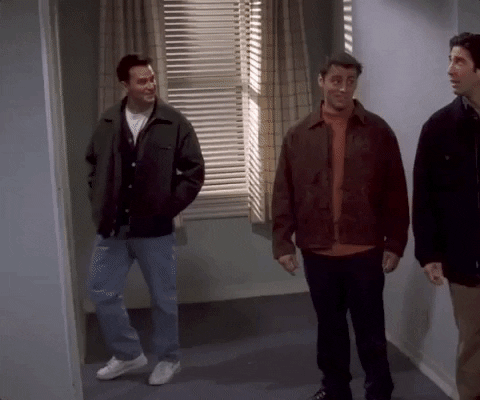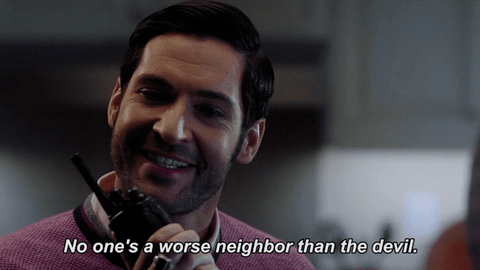All my friends who bought homes before their 30th birthday loved to proclaim that they were no longer “throwing money away” by paying rent.
Although I am now a homeowner, when I was a renter I never felt that renting was wasted money. After all, I traded my rent check for a place to live, something that I needed.
Today, I trade my mortgage payment (plus lots of extra money I have to spend on upkeep), for a place to live.
Why renting is awesome

The financial benefits to homeownership are often overstated. But renting has a few big benefits that you shouldn’t overlook.
It is as flexible as you need it to be
Most rental leases are only a year long. So, if you aren’t ready to commit to living in one place for five years or longer, renting lets you stay as long (or as briefly) as you want.
If you buy a house, flipping it and making a profit is very hard to do in a year. So, renting saves you the pain.
You aren’t responsible for maintaining the property
Also worth restating is the freedom renting gives you from monotonous and expensive maintenance.
When I first bought our house, I couldn’t wait to buy a lawnmower and mow my new lawn. A few years later, I began paying someone to mow it and, if they call in sick, I get annoyed. I have to spend two hours of my weekend pacing back and forth around the yard.
Since we purchased our home, we’ve had to spend thousands on plumbing leaks, basement flooding, worn-out appliances, and other expenses.
Don’t get me wrong, I love our home, but it’s not been without headaches.
When I rented, I took the fact I didn’t have to worry about maintenance for granted. But, make no mistake, it’s a big benefit to being a renter.
Renting can work to your advantage financially
Finally, you can make renting work to your advantage financially, too.
If you live in a market where you can rent an apartment for substantially less per month than you could own a home, you can invest the difference. And the difference doesn’t have to be huge to make an impact!
For example: let’s say you rent for $1,000 but would have to pay a $1,300 mortgage payment on a comparable home. That’d be $3,600 each year that you can invest.
Unlike home equity, the savings you earn by renting are liquid. You can use them to build an emergency fund, pay down student loan debt, or fund a retirement account – none of which you can do with home equity.
A house is not always a good investment

It’s true: some make millions investing in real estate. Some homeowners have even been lucky enough to retire solely on the resale value of their home 30 years after they purchased it!
For most, however, the reality is very different. You should not think of your primary residence as an investment.
Read more: The Truth? Your House Is Not An Investment
Yes, a well-maintained home in a desirable location should appreciate over the long run. But that’s not always how the numbers work out. The expected returns vary dramatically from city to city. So while some homeowners enjoy luxurious returns, others may see a negative rate of return on the primary home purchase.
According to an analysis by Betterment, the average rate of return for homeowners, from the years 1926 to 2018, was 8.56% to 9.96% per year. However, the stock market slightly outperformed that average annual return at 10.1% per year over the same period.
Faced with those numbers, the decision to invest or not invest in a primary residence hangs on the knife’s edge. Ultimately, the returns you experience as a homeowner will depend on a variety of factors, some of which are beyond your control.
Houses are, in fact, money pits
Next up is the undeniable fact that homes are costly to maintain. Houses require periodic painting, landscaping, roofing, HVAC maintenance, and a host of other things. They’re also full of expensive appliances that break at the most inconvenient times. To illustrate that point, my friend had to replace his stove and refrigerator the first year he lived in his house.
Why do you think your landlord is so slow to return your call about the leaky sink?
She wants to get as many years out of that sink as possible.
When we own our homes, we make repairs and renovations based on emotions, not resale value, making owning a home far more expensive than renting.
You can’t control taxes – or your neighbors

When you buy a home, you make a long-term commitment to your neighborhood, for better or worse.
If you live in a city, or town, with a great economy and school system, chances are your home value will increase (but so will your property taxes). And if your salary isn’t soaring as high as those of the new people flocking to your town, you may find yourself unable to afford to stay there.
I’ve seen this happen to both my parents and my in-laws, and it’s not pretty.
On the flip side, if your neighborhood deteriorates, you’re the one not just living there, but owning property. If you rent, you can move at the end of the lease and let your landlord figure out how to deal with the depreciating property.
The only real argument for homeownership
A huge number of Americans own homes, so clearly there are some reasons homeownership is worth it.
You will own your home one day
This can’t be understated. Some folks just want to own a piece of property. The good news here is that when you pay off your mortgage, you’ll be free from mortgage payments. If you’re a renter, you’ll always need to pay your rent.
Yes, with a home you’ll still need to pay property taxes and utilities. but those are substantially less when you don’t have a loan payment on top of them.
You’ll build equity in your home
As long as your property doesn’t depreciate, you will build equity in your home over time.
With each mortgage payment, you’re “saving” a few hundred dollars or more in your home equity that, someday, you could liquidate in a sale or refinancing event.
All else being equal, if you could live in the identical home for $1,000 monthly rent or a $1,000 mortgage payment (of which an average of $600 each month goes toward principal), owning the home seems to make financial sense because you’re holding onto $600 a month before factoring in maintenance and other costs.
That’s definitely a good thing, but I don’t think it’s enough of a benefit to entice people to become homeowners prematurely.
There are simply too many other factors to consider, but I think the two biggest are:
- If you don’t live in your house long enough, much or all of your equity will be erased by realtor commissions and closing costs on a new home.
- Home equity isn’t liquid. If you need cash, you’ll be forced to sell your home or refinance (taking on debt and paying more interest).
Yes, paying a mortgage and building home equity helps you build wealth. But it only works if you stay in one house for a very long time and you don’t borrow against it.
Summary
Want my simple, no-nonsense, financial advice on housing? Consider your monthly housing expenses (whether rent or a mortgage) to be your payments for a place to live. Spend accordingly, and save, or invest, the difference.
If you want the pride (and responsibility) of homeownership, by all means, buy a home – you might even make money on it. But don’t count on your home as an investment.